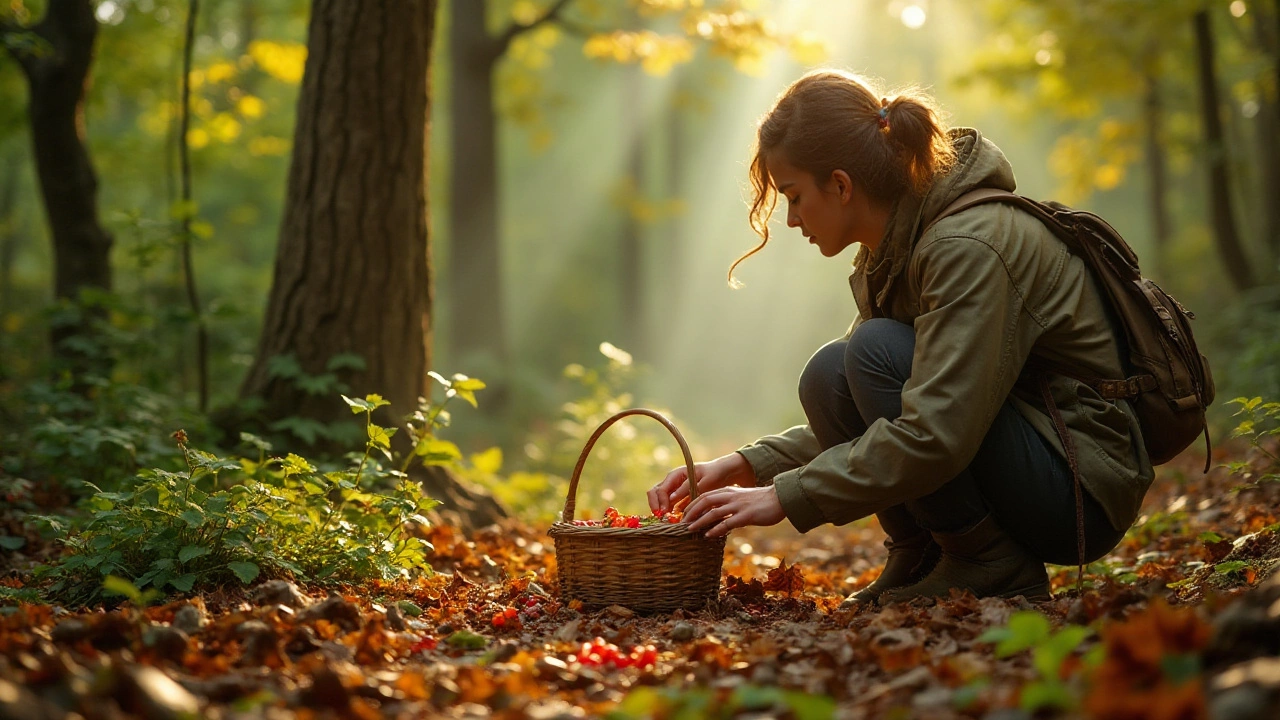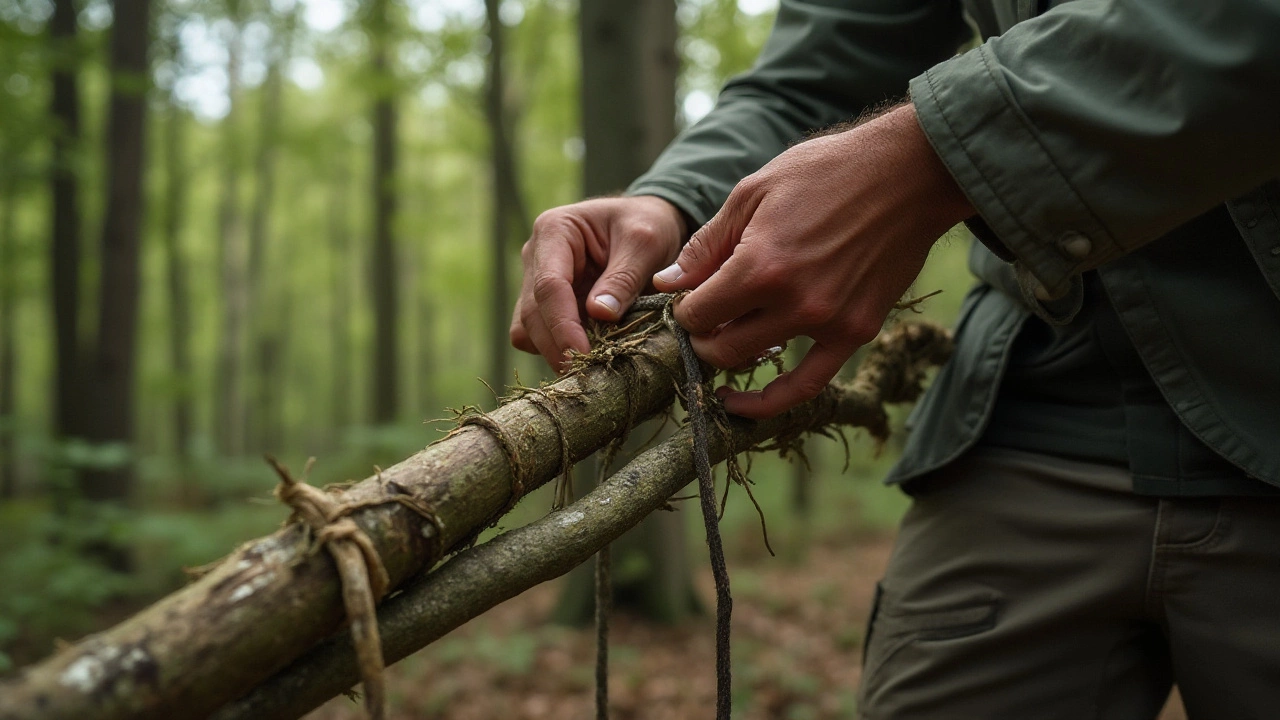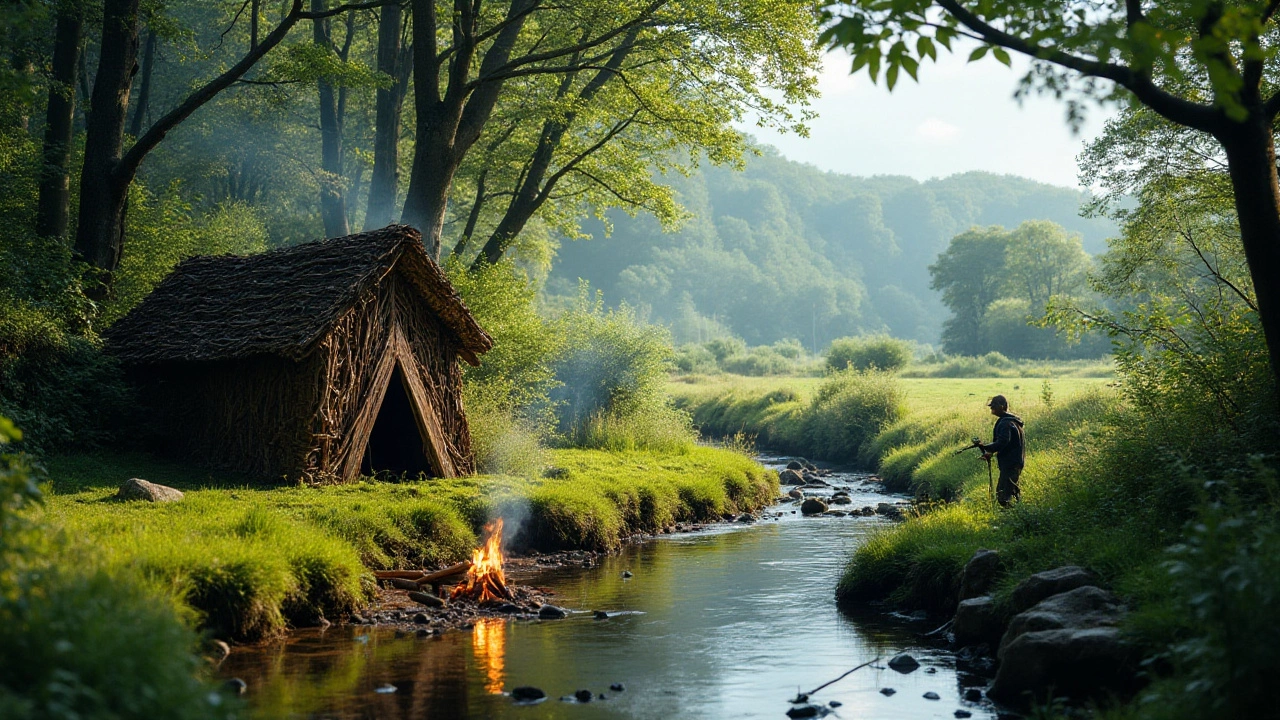Practicing bushcraft is a fantastic way to connect with nature, learn traditional outdoor skills, and enjoy the UK’s beautiful landscapes. It often goes hand-in-hand with wild camping, bringing a sense of adventure and self-sufficiency that many find rewarding.
However, you might wonder if bushcraft activities are actually legal in this part of the world. The UK is known for its stringent laws on outdoor activities and land use, which can make navigating the legal landscape confusing.
This guide aims to unravel the mystery around bushcraft in the UK, helping you understand what is allowed, where you can practice it, and how to do it responsibly. Equip yourself with the knowledge needed to embark on your bushcraft journey legally and thoughtfully.
- Understanding Bushcraft and Its Practices
- Legal Framework for Bushcraft in the UK
- Bushcraft-Friendly Locations
- Tips for Practicing Bushcraft Legally
- Safety and Environmental Concerns
Understanding Bushcraft and Its Practices
Bushcraft is more than just a set of skills; it's about building a relationship with the natural environment through a hands-on approach. At its core, bushcraft involves learning how to survive and thrive using what's readily available in nature. This could be anything from deciphering which plants are edible to mastering the art of fire-making without modern tools. Crucially, bushcraft employs knowledge passed down through generations, blending traditional techniques with an understanding of modern-day needs. As you embark on this journey, you'll find yourself becoming more attuned to the subtle nuances of your surroundings.
Among the most popular bushcraft skills is shelter-building. A simple lean-to constructed from branches, leaves, and other natural materials serves as a temporary home for many bushcrafters. Understanding the best materials and construction methods for different environments can be the difference between a comfortable night's sleep and a restless one. Foraging is another critical component of bushcraft. Identifying plants, berries, and fungi that are safe to consume while avoiding those that are poisonous is a skill that takes time and practice to master.
Fire-making is often seen as a quintessential bushcraft skill. It's not just about creating warmth; fire is also essential for cooking and providing a sense of safety in the wilderness. Traditional fire-starting methods, such as the bow drill or flint and steel, offer a sense of satisfaction and achievement. As the famous bushcrafter Ray Mears once said,
"To know the wilderness is to know a profound delight, a sense of security and well-being."This encapsulates the essence of bushcraft, conveying a deep connection with the earth and a way of life that embraces simplicity.
Tools and Equipment
While bushcraft is largely about using natural resources, certain tools can enhance the experience. The enduring popularity of knives in bushcraft circles underscores their versatility, aiding in tasks from carving wood to preparing food. Axe and saws are also favored for chopping and processing wood. However, responsible bushcraft balances tool use with a respect for the environment, ensuring that one's impact remains minimal and regenerative. The ethics of leave-no-trace should be at the forefront of any bushcraft expedition, ensuring that the landscape remains as pristine as found.
As awareness of environmental issues grows, bushcraft practices have evolved to incorporate sustainable practices. With a resurgence in interest for such skills, many find that bushcraft serves as a gateway to broader environmental consciousness, encouraging people to appreciate and protect nature. This renaissance is driven by the desire to escape the trappings of modern life, offering a refuge in simplicity and a deep, introspective connection to the world around us.
Legal Framework for Bushcraft in the UK
Delving into the legal complexities of bushcraft in the UK can seem daunting, yet understanding them is key to ensuring that your outdoor activities remain both enjoyable and compliant with the law. The UK's land laws are rooted deeply in historic practices and reflect a tradition of private land ownership. This means that most land is owned, and engaging in activities like wild camping and bushcraft usually requires the landowner's permission. This is primarily due to the Trespass Act, which restricts unauthorized camping and certain outdoor activities. Trespassing, even when done unknowingly during a bushcraft experience, can lead to legal complications, making it crucial for adventurers to do their homework before setting out.
One might ask whether there are places where bushcraft can be practiced legally without such rigid restrictions. The answer is affirmative but comes with caveats. Notably, certain areas in Scotland under the Scottish Outdoor Access Code offer more freedoms for outdoor enthusiasts, primarily due to its right-to-roam laws. However, these liberties come with responsibilities; respect for nature, consideration for privacy, and the imperative to leave no trace are emphasized. When in doubt, it's wise to contact local authorities or landowners directly to gain clarity on what activities are permissible.
A remarkable development in England and Wales is the popularity of bushcraft courses offered by various organizations, which sometimes have arrangements with landowners to utilize their spaces. This not only provides a legal framework but also ensures participants learn under expert guidance, with comprehensive respect for local regulations. Notably, Chris Packham, a prominent naturalist, says,
"Bushcraft isn't just about survival skills; it's about surviving legally and harmoniously within a community and its set frameworks."Such courses often integrate environmental education, sustainable practices, and emphasize the importance of preserving the natural ecosystems in which these activities take place.
For those exploring doing it independently, certain National Parks might allow limited activities if you follow specific guidelines outlined by local conservation efforts. Yet, every responsible practitioner of bushcraft UK must prioritize exploring their legal standing. A crucial tip involves consulting with the National Park Authority of the area you intend to visit, as it offers clarity on accessible areas for your adventurous pursuits. Given the rise in interest surrounding outdoor activities, some locations now provide specific zones where camping and bushcraft activities are permitted.
Another layer to consider is the environmental laws protecting native flora and fauna, which come into play significantly during bushcraft activities such as foraging. It's important to note that while the pursuit of self-sufficiency might prompt one to forage, strict laws govern the picking and collecting of certain plants and wildlife to prevent ecosystem degradation. Therefore, understanding and adhering to these guidelines can enhance the bushcraft experience by ensuring it remains a sustainable and legal adventure. This knowledgeable approach to nature invokes a broader respect, making one's bushcraft adventure not only legal but profoundly connected to the land’s cultural heritage and biodiversity.

Bushcraft-Friendly Locations
Finding the right spot for practicing bushcraft in the UK might seem daunting at first due to the restrictions on land access. However, there are locations that are both legal and welcoming to those eager to embrace the wilderness. Scotland shines as a prime location, thanks to its 'Right to Roam' laws that give you more freedom to explore and camp responsibly. While this means wild camping and bushcraft activities are more accepted, remember that this privilege comes with expectations for minimizing trace and conserving nature. Additionally, Scottish countrysides draw enthusiasts to stunning locales like the Cairngorms and the remote stretches of Galloway Forest Park, both rich in natural beauty.
In England and Wales, the public pursuit of wild camping leans more on gaining permission from landowners, providing an opportunity for responsible campers to demonstrate a sense of community and respect for private spaces. Areas within the Lake District and Dartmoor National Park offer places where restricted wild camping is permissible, usually subject to specific rules. Dartmoor, with its varied landscape of forests and tors, serves as a unique alternative to more managed campsites, provided visitors follow guidelines and practice no-trace camping. This nature embrace invites memorable nights under star-speckled skies, encouraging people to learn about their environment intimately.
Opportunities also exist on certain estates or private folds that explicitly encourage bushcraft activities. Such venues, often used by schools or survival groups, can be found across UK, inviting inquiries and potential applications for community events. Not all lands are closed off—some invite connection backed by permits or organized group arrangements. Certain forests, like those managed by the Forestry Commission, occasionally allow bushcraft courses, giving enthusiasts a taste of authentic wilderness living. Joining workshops or programs run by established bushcraft schools can offer both practical skills and legal access through collaborative events, nurturing an appreciation for ancient skills alongside modern regulations.
“The key to enjoying bushcraft without worry,” says Ray Mears, a renowned figure in outdoor living, “is to blend love for nature with respect for laws—and an eagerness to learn from both.” Such harmony between law and passion establishes pathways for legally enriching experiences. Come prepared with a strong sense of ethics, ready to embrace both wilderness challenges and the legal frameworks that maintain these lands for future generations.
Below is a quick guide to understanding various permissions across regions:
| Region | Permission Status | Notable Locations |
|---|---|---|
| Scotland | Flexible with Respect | Cairngorms, Galloway Forest Park |
| England | Requires Permission | Lake District, Dartmoor |
| Wales | Requires Permission | Brecon Beacons |
Embrace the heart of outdoor adventure with a focus on ethical and legal principles. Whether amidst Scotland’s vast lanes, or under the watchful eye of Dartmoor’s tors, the spirit of bushcraft beckons those willing to tread lightly and live sustainably at one with nature.
Tips for Practicing Bushcraft Legally
Engaging in bushcraft UK activities can be a thrilling pursuit, but it’s critical to ensure your activities align with the legal frameworks in place. First and foremost, securing permission from landowners is often necessary since most land in the UK is privately owned. Without explicit permission, practicing bushcraft could be deemed trespassing, with potential legal consequences. Public spaces such as national parks may have their own set of rules, so checking local regulations is crucial before setting up your temporary wilderness home.
When selecting a spot for bushcraft, it’s important to choose areas that encourage or permit outdoor skills training. Some organizations and private enterprises provide designated lands specifically for this purpose, allowing enthusiasts to practice legally. The UK also has a unique legal standard known as Right to Roam, which grants some public access to private land, predominantly in Scotland. However, it’s essential to research individual land rights, as this does not universally guarantee access everywhere in the UK.
Consider taking a bushcraft course from recognized instructors or organizations. These courses often provide insight into local regulations while equipping you with essential survival skills. Many courses are structured to operate within legal parameters, offering a safe environment to learn and practice. Plus, you’ll also learn about sustainable practices, ensuring that you leave minimal impact on the environment, which is not only ethical but often a legal requirement.
When practicing bushcraft UK, respect for nature must be at the forefront. Be mindful to minimize any disruptive activities to wildlife or natural habitats, as damage to fauna and flora is a concern in national regulations. Fires are an exciting element of bushcraft, yet they can easily spiral out of control or cause damage if not managed properly. Using portable stoves or pre-established fire sites can make a big difference, reducing the risk of unintended harm.
Foraging is another exciting aspect of bushcraft, but not everything found in the wild is free to take. The Wildlife and Countryside Act 1981 outlines several restrictions about gathering plants or disturbing wildlife. Familiarize yourself with this and any other applicable legislation as it helps avoid potentially hefty fines. Not only is this beneficial legally, but it also supports biodiversity conservation, which is vital for sustaining the natural beauty we enjoy.
"Leave no trace," a principle emphasized by many outdoor organizations, stands as a guiding beacon for bushcraft practice. It's about appreciating nature without leaving signs of your visit, keeping our natural spaces pristine for future generations to enjoy.
Adopt a mentality of continuous learning and respect for both nature and local rules. Each excursion is a chance to expand your knowledge and improve your skills, while ensuring you remain on the right side of the law. By doing so, you contribute to a culture of responsible wild camping practices, keeping these activities enjoyable and sustainable for the growing number of enthusiasts around the UK.

Safety and Environmental Concerns
When diving into the world of bushcraft in the UK, it’s crucial to keep safety and environmental considerations at the forefront of your mind. The natural world offers much beauty and adventure, but it also requires respect and caution. First and foremost, personal safety should be a priority. Always inform someone about your bushcraft plans and expected return time. It's also wise to carry a first aid kit specifically designed for outdoor excursions. These kits should include bandages, antiseptic wipes, pain relievers, and any personal medications you might need. This simple preparation can make a huge difference in case of minor injuries or illnesses.
Nature, in its untouched form, offers many resources but can also pose subtle dangers. Weather conditions in the UK can change rapidly, with the potential for rain, fog, or even snow at unexpected times. Good quality gear is essential to protect against these elements. A sturdy, waterproof jacket and insulated layers can mean the difference between comfort and hypothermia. Similarly, ensuring you have reliable and adequate lighting helps navigate safely through low light conditions often found in wooded areas.
Environmental Responsibility
Bushcraft activities often involve using natural resources, such as twigs for fires or plants for crafting. While this is a core aspect of the practice, bushcraft enthusiasts should be conscious of their ecological impact. The “Leave No Trace” principle is a fundamental guiding philosophy for responsible outdoor activities. It emphasizes minimizing human footprint, encouraging participants to leave environments as they found them. For instance, when building fires, use established fire rings where possible and avoid using live wood. Dead, fallen wood is preferable as it contributes less to deforestation and habitat disruption.
Furthermore, when foraging, be mindful not to over-harvest plants or disturb wildlife. Certain species may be protected, and uprooting or collecting them could be detrimental to local ecosystems. Knowing which plants are safe and plentiful can help you avoid unintended consequences. According to a study published by the UK’s Forestry Commission, sustainable harvesting helps maintain ecological balance, allowing ecosystems to recover and flourish, ensuring they remain vibrant for future generations.
‘We don’t inherit the land from our ancestors; we borrow it from our children.’ - Native American Proverb
Basic Bushcraft Safety Checklist
Lastly, a bushcraft adventure should always conclude with a thorough check that all activities conducted did not harm the environment. Before leaving your bushcraft site, take some time to walk through your camp area. Ensure all fires are fully extinguished, pack out any trash you’ve created, and try to leave only footprints. Always remember that the land you’re enjoying is a shared resource for everyone, including wildlife. Fostering a practice that supports environmental stewardship ensures that the UK’s wild landscapes remain pristine and accessible to future bushcrafters. Consider incorporating reusable items into your gear, reducing the use of disposable plastics, which often contribute to litter in natural environments.
Through careful planning and by respecting the environment, those who practice legal bushcraft in the UK can enjoy the wilderness while preserving it for those who follow.
